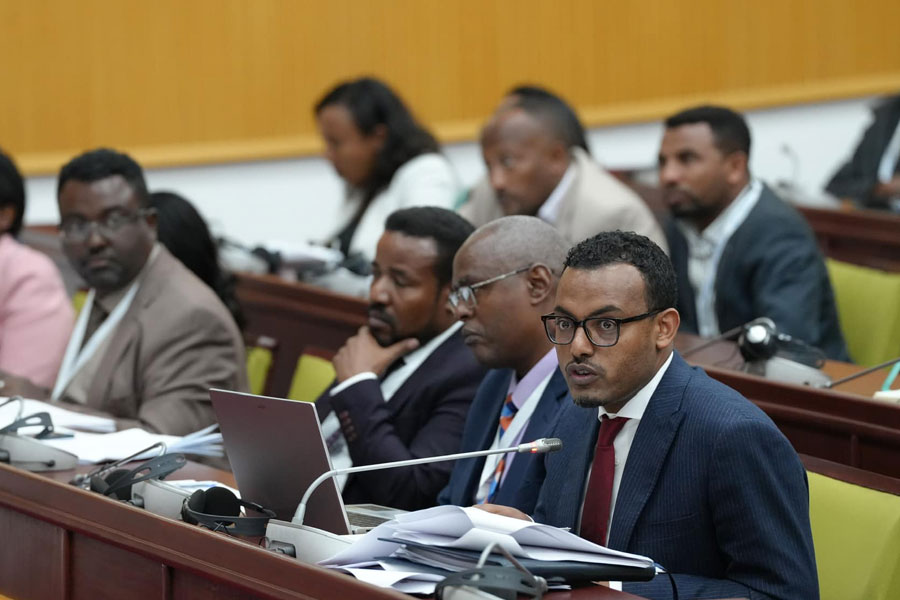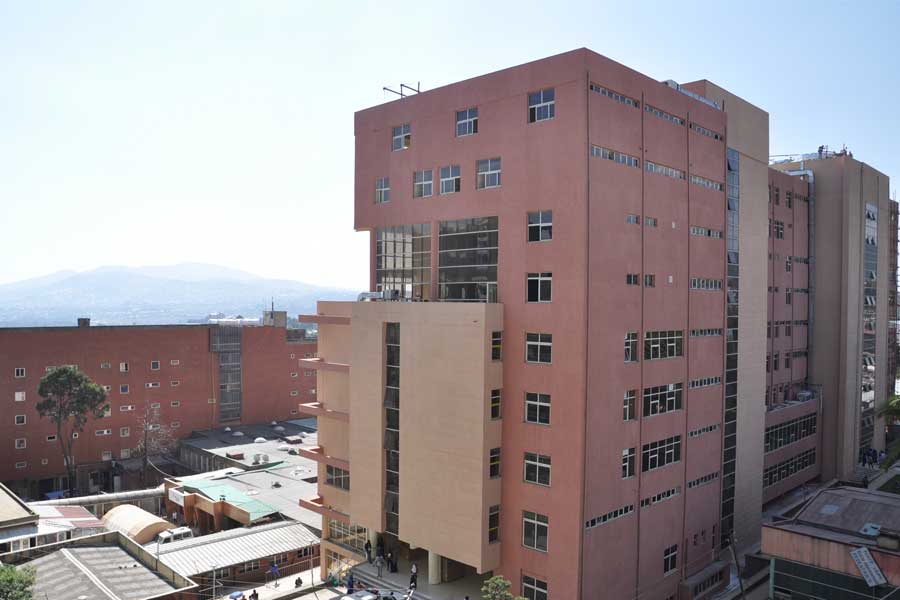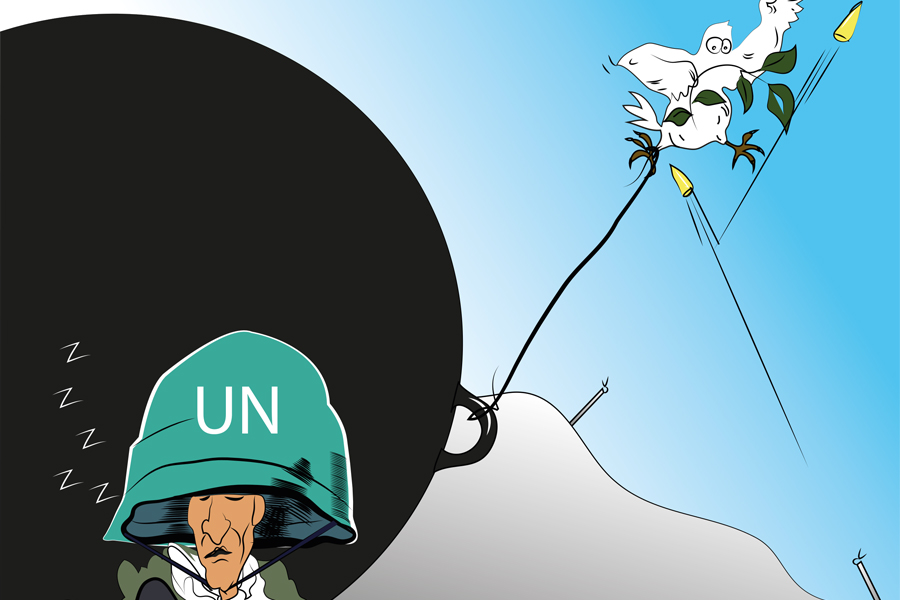
Jul 10 , 2021
By Asegid Getachew
Organisational visibility is a concept that has come to refer to the high public presence of firms. Organisations build their presence through their exposure and appearances in various media. Visible firms gain reputation, acceptance and goodwill by reaching out to a broader public. Research in the area also indicates that visibility enhances firms’ prominence, status and standing.
Organisational visibility, however, is a double-edged sword. It puts firms under the scrutiny of the public and media. Whatever they do, good or bad, is always under the watchful eyes of the press. Any form of malpractice can potentially tarnish their good reputation and goodwill.
In the practical business environment, the actions of two multinational giants with high visibility can be considered as an example to understand the possible negative ramifications of organisational visibility.
One case relates to Nike, the American multinational giant engaged in the design, development, manufacturing, and worldwide marketing and sales of footwear, apparel, equipment, accessories, and services.
A company with annual revenue of over 37 billion dollars, Nike claims that it is a “brand that celebrates humanity and all its potential.”
However, investigations in the early 1990s indicated that there were some people whose humanity it did not quite respect. Its operations in Asia were marred by child labour and below minimum wage salaries – basically sweatshops. The revelation had a harmful impact on the firm's image and has forced it to take action to revert the damage. The company established a department dedicated to improving factory workers lives; raised minimum wages for its workers; performed hundreds of factory audits; and published a list of the factories it contracts.
“The Nike product has become synonymous with slave wages, forced overtime, and arbitrary abuse,” Phil Knight, former CEO, put the heat the company was facing in a nutshell.
Another company that has faced public ire in proportion to the media presence and visibility it cultivated is Shell. This British-Dutch oil giant claims that it is “providing more and cleaner energy solutions in a responsible way.”
The fifth-largest company in the world by revenue last year, Shell was bound to be in controversy. In a time of climate change alertness, a company that trades in fossil fuels could not possibly escape criticism. Some of these have gone to the courts, as did a legal battle initiated by Friends of Earth Europe (FOE), which sued Shell on the grounds of environmental pollution.
”This case matters for people everywhere. Shell is doing enormous damage worldwide – climate change and dirty energy have devastating impacts worldwide, but especially in the global South. With this lawsuit, we have a chance to hold Shell to account,” said Karin Nansen, chair of the non-profit.
This and other court battles conclude in an epic decision that led to Shell being ordered to lower its carbon dioxide emissions by 45pc within 11 years of the ruling.
The use of visibility to garner reputation and goodwill is at its fledgling stage in developing countries like Ethiopia. At the moment, the potential benefit that comes with visibility or the punitive consequence of being non-visible is so low that organisations have less incentive to pursue it as a strategy. But the race for visibility is bound to peak its head moving forward.
The examples of Nike and Shell show that visibility is actually for a greater social good. It forces companies to be more transparent and caring about their impacts on their employees' environment and working conditions. In the short term, of course, it will be a headache to board members and shareholders but could have a long-term positive outcome for the industry and the company.
To reap the potential benefit from visibility, organisations need to support what they communicate with what they do. Any discrepancy can cause damaging consequences on goodwill, reputation and sales.
PUBLISHED ON
Jul 10,2021 [ VOL
22 , NO
1106]


My Opinion | Jun 11,2022

Commentaries | Mar 21,2020

Sunday with Eden | Jan 21,2023

Commentaries | Aug 21,2021

Fortune News | Nov 16,2024

Sunday with Eden | Aug 03,2019

Fortune News | Nov 02,2019

Fortune News | Sep 10,2023

Editorial | May 23,2021

Sunday with Eden | Dec 04,2020

Photo Gallery | 177902 Views | May 06,2019

Photo Gallery | 168113 Views | Apr 26,2019

Photo Gallery | 158836 Views | Oct 06,2021

My Opinion | 137020 Views | Aug 14,2021
Commentaries | Oct 25,2025

Dec 22 , 2024 . By TIZITA SHEWAFERAW
Charged with transforming colossal state-owned enterprises into modern and competitiv...

Aug 18 , 2024 . By AKSAH ITALO
Although predictable Yonas Zerihun's job in the ride-hailing service is not immune to...

Jul 28 , 2024 . By TIZITA SHEWAFERAW
Unhabitual, perhaps too many, Samuel Gebreyohannes, 38, used to occasionally enjoy a couple of beers at breakfast. However, he recently swit...

Jul 13 , 2024 . By AKSAH ITALO
Investors who rely on tractors, trucks, and field vehicles for commuting, transporting commodities, and f...

Oct 25 , 2025
The regulatory machinery is on overdrive. In only two years, no fewer than 35 new pro...

Oct 18 , 2025
The political establishment, notably the ruling party and its top brass, has become p...

Oct 11 , 2025
Ladislas Farago, a roving Associated Press (AP) correspondent, arrived in Ethiopia in...

Oct 4 , 2025
Eyob Tekalegn (PhD) had been in the Governor's chair for only weeks when, on Septembe...

Oct 25 , 2025 . By YITBAREK GETACHEW
Officials of the Addis Abeba's Education Bureau have embarked on an ambitious experim...

Oct 26 , 2025 . By YITBAREK GETACHEW
The federal government is making a landmark shift in its investment incentive regime...

Oct 27 , 2025
The National Bank of Ethiopia (NBE) is preparing to issue a directive that will funda...

Oct 26 , 2025 . By SURAFEL MULUGETA
A community of booksellers shadowing the Ethiopian National Theatre has been jolted b...